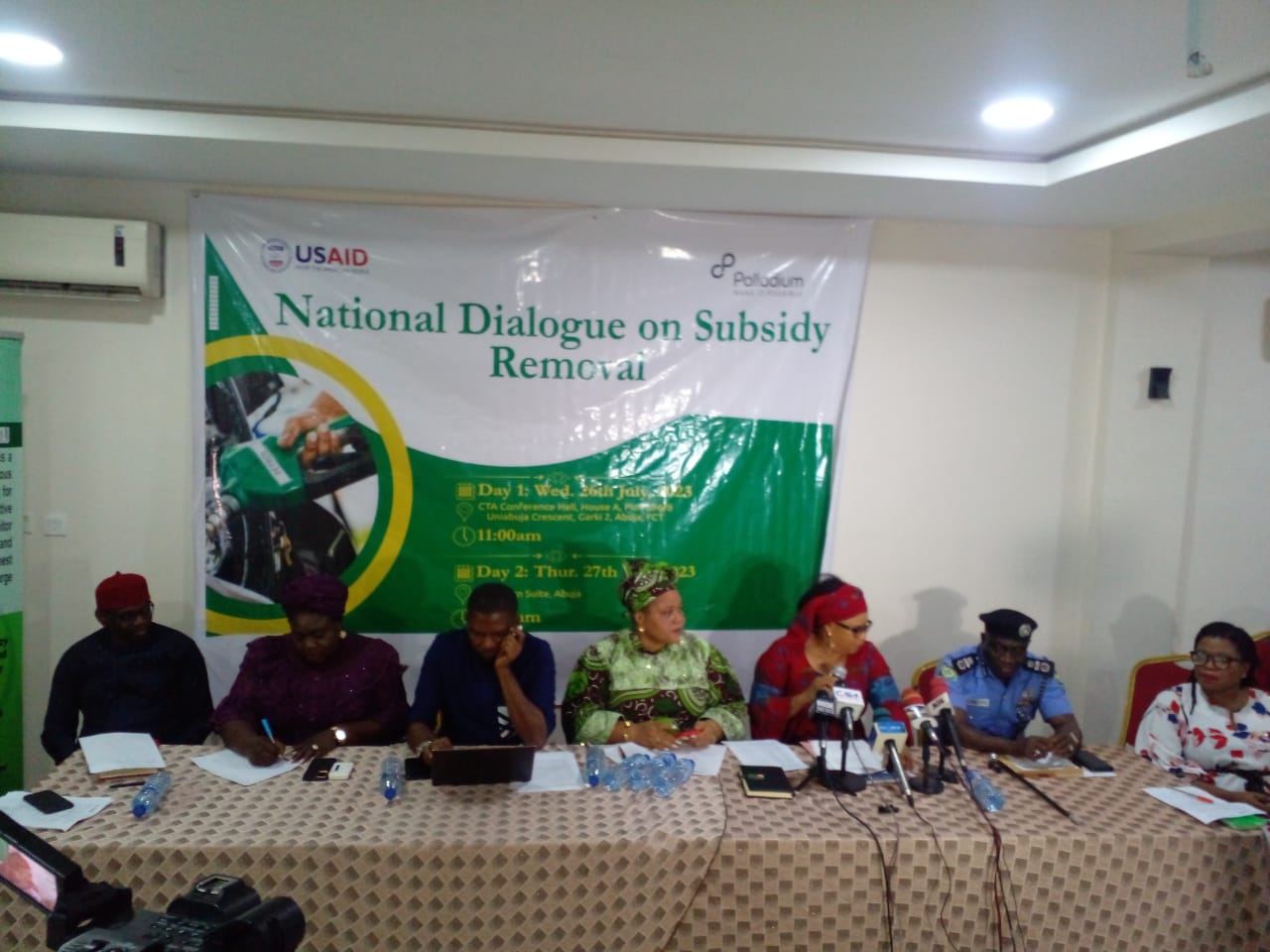By Adeola Ajiboye
A group of civil society organisations (CSOs) and other relevant stakeholders have met in Abuja to explore ways out of the file prices hike crisis after the fuel subsidy removal by the federal government.
The stakeholders under the banner of ‘National Dialogue on Subsidy Removal’, facilitated by United States Agency for International Development (USAID) and Palladium, reviewed the policy which took effect on May 29th, 2023 and concluded that more proactive actions were required on the part of government and the citizens to ameliorate its effects.
Speaking at the event, Executive Director of Centre for Transparency Advocacy (CTA) Faith Nwadishi, urged politicians and government at all levels to urgently engage Nigerians to find workable solutions that would mitigate the hardships trailing the removal of subsidy.
She argued that besides it’s disruption to lots of development in the country, the hasty removal of subsidy has led to some deaths due to the suffering and inability of many people to meet up with the high increase in transportation, goods, services and other basic needs needed for survival.
She said that in the spirit of transparency, accountability and citizen participation, it has become critical for government and the political class to engage the people whom they have vowed to serve, to find out their specific problems, needs and how best they could be addressed, as the voices of those directly affected by the subsidy removal must be heard and considered.
“The decision to remove fuel subsidy have had significant implications on the lives of our fellow citizens. It has resulted in increased costs of living, affecting transportation, essential goods, and services. As we gather here today, it is imperative that we recognize the urgency of coming up with sustainable recommendations to mitigate the hardships faced by vulnerable groups in our society,” Nwadishi said.
Also, one of the participants at the event, Dr Micheal Uzoigwe, said that it was of strategic importance for government to cushion the socio-economic effects of the subsidy removal on citizens.
He noted that fuel subsidy failed to achieve its aim in Nigeria because its administration was flawed and characterized by lack of transparency, mismanagement and corruption.
Dr Uzoigwe also said that it is important to recognise that the essence of fuel subsidy removal was not to make more revenue available to government, which will be subjected to the same systemic inefficiency that drained government revenues and denied the poor the full benefits of fuel subsidy.
“The figure has been quoted to be as high as 68m litres per day. The Nigeria Extractives Industry Transparency Initiative (NEITI) shares the same concern about the bogus consumption figures and is currently seeking to conduct a study that could provide a more accurate estimate.
“Without a strong signal on fighting corruption, there is no guarantee that the potential savings from subsidy removal would be safe or appropriately utilized. Government should disclose plans for repositioning critical accountability institutions for improved performance and delivery of their mandates.
“The sacrifice required to salvage the country’s struggling economy cannot be made only by the poor and vulnerable. The annual salary and benefits of a Nigerian senator come to about N350m while those of a minimum wage earner are less than N400,000,” Uzoigwe said.










